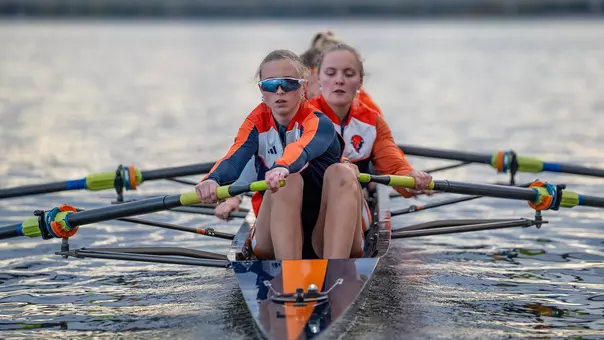Bucknell University Athletics

Women's Rowing Journal - Kelly Henkler
7/30/2007 8:00:00 AM | Women's Rowing
July 30, 2007
In a psychology discussion addressing operant conditioning and its reward components, my professor used the university's crew team as an example. Looking at me, he stated, "There are some people who get up at 5 a.m. every morning so they can go sit in a boat on a hard seat in the middle of a freezing river. Why do they do that? Well, they claim it's rewarding."
He laughed and shook his head disbelievingly as did the rest of the class. Being a psychology professor, he was undoubtedly aware that the most effective rewards are typically those given directly following the behavior. For a sport as punishing as rowing, he seemed to think the reward must be not only astronomical but also extremely gratifying.
Rowing doesn't work that way and rowers don't fit the typical action and reward model. We practice all season to attain very small rewards, whether it is the satisfaction of knowing you finished an impressive workout before the rest of your peers woke up, or the chance to duct tape a plastic whale to the bow of your boat to indicate your "awesomeness." But the real reward doesn't come until the end. Once "in season", the rewards begin to reach a level that non-rowers can understand. This past season we could brag about competing against top-level crews and winning nearly every time we hit the water. But still, the real rewards came the last two weeks when we watched our seniors as they were recognized for their extraordinary accomplishments, won the Patriot League Championship for the second year in a row, and then won our final championship regatta, the ECAC Metro.
Maybe my psychology class couldn't understand because they thought the team worked all year for a shiny plaque, which would not be remotely worth all the work. If that was all we wanted, we could go to the store and purchase a trophy. Instead, we work all year so we can spend our summers saying that we pushed harder, fought longer, and gave up more than others. We're armed with the knowledge that we finished our season stronger, healthier, and more focused than when we entered. That is the gratifying reward my psychology professor failed to see, and the reason why we row.
- Kelly Henkler '09







